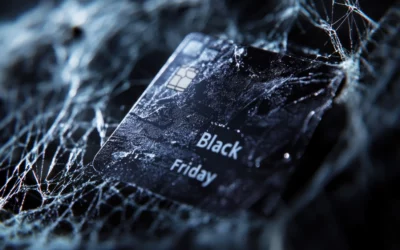How many of you remember the myth of King Midas?
More importantly, how many of you can see the correlation between this myth and cybersecurity?
King Midas is a character from Greek mythology, known for his uncontrollable “desire” for wealth. In fact, the Phrygian ruler Midas received from Dionysus, as a sign of gratitude for having returned his friend Silenus to the god, the ability to convert anything he touched into gold.
Having the “Midas touch” seemed like an extraordinary privilege: the experience of changing ordinary objects like wood and rocks into valuable metal was indescribably exhilarating. But soon King Midas had to realise that this privilege was nothing but a curse.
In fact, the ruler could no longer eat or drink, as food and water turned to gold as soon as he touched them. The situation became all the more tragic when he embraced his daughter, also turning her into a golden statue.
Desperate, Midas begged Dionysus to release him from the curse. Having compassion for him, the god instructed him to wash himself in the river Pactolus to get rid of the gift. Midas did as he was told and the river water carried away the cursed power.
After this experience, Midas realised the value of simple things and freed himself from desire and greed, devoting himself to worshipping the god Pan, divinity of nature.
The story of King Midas contains a profound lesson on the nature of desires and their potential consequences. It allows us to understand how perilous it can be to get carried away by the deep impulse of a desire without thinking rationally about the consequences.
In psychology, this is referred to as “cognitive desire bias” or “wishful thinking”. It is a kind of cognitive distortion that makes us more likely to believe what we hope is true, instead of looking at the facts in an unbiased way. It’s like wearing glasses that make us see things the way we would like them to be, rather than seeing them as they actually are.
This bias can skew an individual’s perception, judgement and memory, causing them to interpret situations optimistically or in accordance with their personal expectations, to the detriment of a realistic and critical understanding.
In a world where technology dominates, online scams thrive by exploiting exactly this cognitive bias. Advertisements for miracle products, unmissable offers and investment opportunities that promise unbelievable returns: these are all lures that rest on the human desire to achieve more with little effort. These scams promise “gold”, just like the Midas touch, but at the price of our resources, our security and sometimes our dignity. These techniques are based on deception and psychological manipulation.
How many times have we come across social media advertisements offering the “secret formula to become rich in no time and with no effort”.
Although most of us know that this is just an illusion, the “desire bias” can take over. Also because we may think that “having a look” may not be so dangerous.
Here is how it works:
Deep desire: many people have an inner desire to improve their financial situation and achieve a more comfortable and stress-free life as far as money is concerned. Therefore, the prospect of a “secret formula” appeals to this desire.
Ignoring our own critical sense: due to the strong desire to believe that it is possible, one might ignore one’s own critical sense or scepticism. A person may overlook questions such as “If it is really so effective, why is this person sharing it with the world and not just using it themselves?“.
Selective confirmation: if there are testimonials or reviews in the advertisement, the “desire bias” may lead to giving them more weight, even if they are few or vaguely suspect. We might overlook the possibility that these testimonies were manipulated or created specifically.
Minimising risks: even if there is some cautionary warning in the social media advertisement, because of the “desire bias”, we might not give it much weight, focusing instead on the glowing promise of wealth.
The “desire bias” appeals to our deep-rooted desire for success and well-being, making us less critical and more receptive to promises, even if they are “too good to be true”. When we enter the “tunnel” of desire, we tend to follow it all the way, ignoring all the signs that are supposed to generate distrust.
In a digital world full of advertisements and offers, it is essential to be aware of this cognitive bias in order to make informed decisions and protect oneself from potential scams.
Acting impulsively can lead us to very serious consequences, from a cash scam, perhaps to buy an e-book full of obviousness and of no practical use, to the loss of confidential information, which can then be used later, in the best case scenario to bombard us with advertisements, and in the worst case scenario to empty our online bank account.
The myth of King Midas should help us reflect and prompt us to trigger our critical spirit, reminding us that any opportunity that is “too good to be true” is almost certainly false.
Creating this kind of awareness is what we at Cyber Guru Italia do every day.







